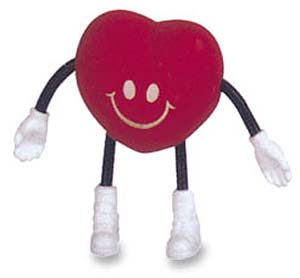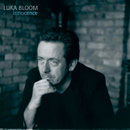11/16/2005
About goodness - a summary in English
So here are 2 short summaries in English - which are also usable for people who speak Dutch but who prefer to read summaries instead of long texts ;-)
1. And the darkness hasn't conquered the light yet
As a child, when I went to church, we always sang songs of Huub Oosterhuis, who made in his lyrics a modern "translation" of bible verses. After not having listened to his songs for about 15 years, I recently rediscovered them. With texts about "revealing my real face", against injustice and poverty, and to stimulate solidarity. He sings about the light inside of people, the light of goodness. We have the ability to choose to be good. We should let our light shine in the darkness around us. And he sings that the darkness hasn't conquered the light yet, and it never will.
The texts of his songs give me strength, they speak directly to my heart. When I hear these texts I can feel the power of God as infinite goodness, the God of justice.
The politician and writer Anja Meulenbelt, from the Socialist Party, writes in this same way about Huub Oosterhuis in her weblog:
"As a joke (but in fact seriously) I used to say that I am an inveterate idealist and that it will never change. I feel as if I am pushed by an impatient hand which keeps pushing on my back, a finger that points out: "there you should go". It doesn't help to resist, so I am doing what I feel I should do. You could call it a calling/mission, but without any "colonialistic" or other paternalistic connotation.
"Different, older, someone hidden within us" - sings Oosterhuis about God - "Suddenly flaming up fire of visions". I often recognize this in the people I work with, people who do what they have to do. People who never give up in their struggle for a better world, even when it seems to be against all odds. People who don't like "big" words, and who often can't explain why they are doing it." People all have a personal desire / passion, although not everyone feels it as strongly. My passion is for justice. You can see it as if my heart has little arms that stretch out towards justice. No matter how often I try to put these arms to a different direction, as soon as I let go of them they immediately move towards justice again. The arms of my heart long for a better world, with less poverty and racism. It doesn't matter that I can personally do only very little to improve the world, what matters is that my actions are aimed at justice, it doesn't matter how little I actually achieve.
People all have a personal desire / passion, although not everyone feels it as strongly. My passion is for justice. You can see it as if my heart has little arms that stretch out towards justice. No matter how often I try to put these arms to a different direction, as soon as I let go of them they immediately move towards justice again. The arms of my heart long for a better world, with less poverty and racism. It doesn't matter that I can personally do only very little to improve the world, what matters is that my actions are aimed at justice, it doesn't matter how little I actually achieve.
2. Is it bad to be good?
I am taking part in a Derrida reading group and last week we talked about Derrida's book "About hospitality". Somebody said that Levinas and Derrida try so much to help others that they might forget to take care of themselves. But I think it's good that they focus on the other, I think that people usually care enough about themselves already. Only the other that I am faced with can wake me up from my automatic selfishness, and it is only at this point, when I am faced with the other, that it becomes interesting for Levinas and Derrida.
I know about myself that I am pretty naive, against all odds I keep believing that human nature is good. Each time when it turns out that people did bad things on purpose, I had already thought of an innocent explanation instead. People are sometimes worried about all the bad things that could happen to me because of my naivety. But still I don't want to distance myself from it. And anyway it's not easy to change someones inner nature. There's a difference between ignorance and a conscious choice to take a certain risk. It's a clever thing to try not to be too ignorant, so as to make a realistic estimation of possible dangers, instead of blindly walking into an abyss. When I would welcome a stranger in my home, I know very well that he could be a father murderer (as Derrida refers to Oedipus), but I deliberately decide to take that risk. This because I prefer to do this instead of blocking the door completely with all kinds of conditions, which could result in me blocking the door for the good stranger that I absolutely should have let in.
And here's a song from Luka Bloom about this choice not to let go of my naivety:
Sweet smell of incense
Since the prayers and the bells
Made complete sense
Most of all I loved benediction
With an innocent child's conviction
Between the past
and whatever the future sends
I choose innocence
I remember the taste
of the first kiss by the river
And the promises we'd keep
forever and ever
I still love the smell
of the innocent years
And I choose innocence
after my tears
